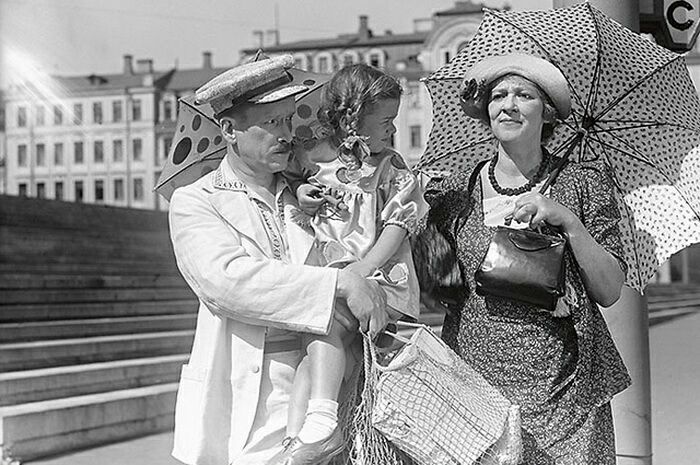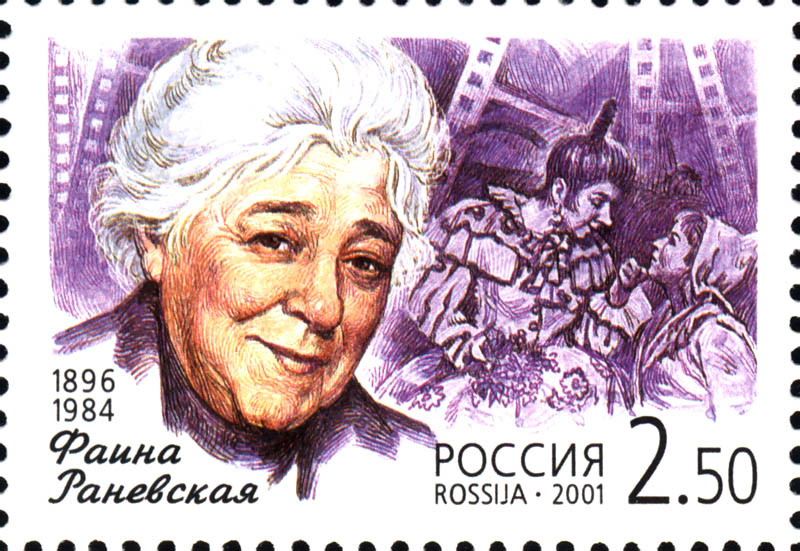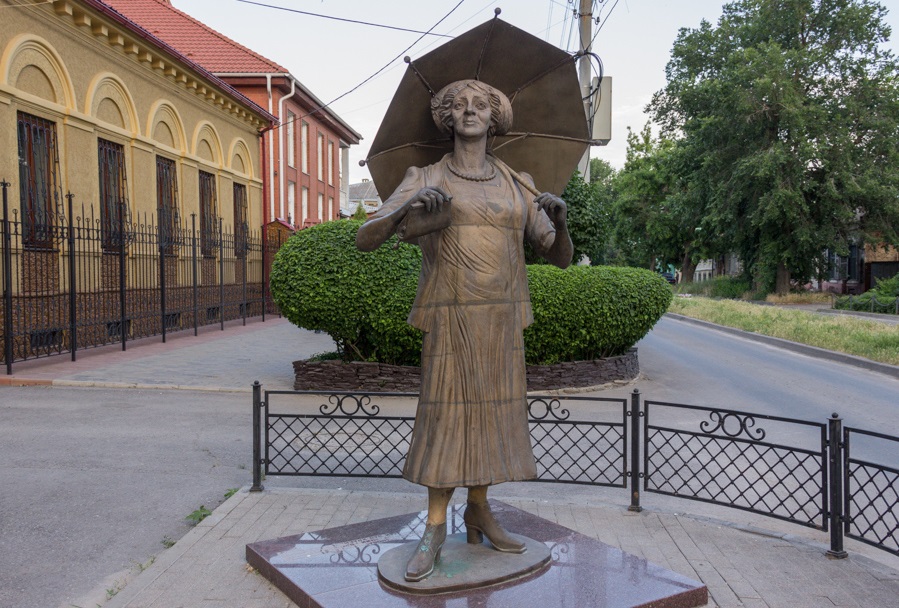He told The Moscow Times that in his latest role — president of Sistema Mass Media, where he manages 500 people creating digital and video content for MTS, other Sistema subsidiaries and the consumer market — he is fulfilling the goal he set for himself to transform from entrepreneur to corporate leader, all the while reveling in the learning process.
This interview has been edited for length and clarity.
Q: What brought you here 30 years ago?
A: I was working for Steve Wozniak right after college in 1982. Apple had just gone public, and he made a ton of money. He wanted to do a West Coast equivalent of Woodstock with a U.S. Festival. We had the biggest artists: The Police, David Bowie, U2. Woz had all these wild ideas. We designed the first stage with video screens. I was head of production.
We wanted to do creative and interesting things for the audience of 100,000 to 200,000 people who were sitting there for 30 to 40 minutes between set changes. So the idea was to use the screens to entertain them: show spaceships and helicopters landing; have people talking back and forth. MTV had just launched, and we had VJ's appear. Then Steve said, "Let's do a satellite link up with Soviet television." So I got the task and we did the first "space bridge," or telemost.
Q: How did you set up such a thing back then?
A: We called a bunch of friends and contacts, found out who the "private diplomats" were, got the name of a person who did this stuff unofficially and paid him a consultant fee. We started talking to Gosteleradio, the Soviet agency responsible for television and radio. The first telemost was between a Soviet TV studio and one of our music festivals, in 1982. It was very much controlled by them, but they were intrigued by the idea — satellites, Apple computers, Wozniak. They liked the result and then put it on TV.
Their motivation? Well, it was the Ronald Reagan evil empire days; there was no communication between the countries. This represented world peace, global communications, and it was controllable. They positioned it as Soviets on the cutting edge. Pure propaganda.
This was when Vladimir Pozner came over from radio to TV. He was very articulate on stage, and it worked.
Then I started getting telexes from Gosteleradio: "Please come to Moscow. We want to do more of these things." I guess some Politburo member saw it, said it was a cool idea, and told them to do more.
I get off the plane in Moscow in a "Surf California" T-shirt and jeans. I'm still the simple Californian. There were these guys right at the plane, with my name on a sign. "We are looking for Mr. Gerwe. Is the executive on the plane? Are you his aide? We really need to find him." It took me 20 minutes to convince them who I was. You could just see the disappointment on their faces.
I got in the Chaika limousine, and we drove in the center lane. Then I found myself in a meeting with the chairman of Soviet television. I had put on a suit and was properly presentable, and we agreed on doing another five-six space bridges, which led to the space-bridge industry in the early '80s.
Q: And what was the follow on?
A: Since the music industry was involved in our two U.S. festivals, for years after that I would get phone calls to do Russian media. I helped organize the Billy Joel tour of Moscow and Leningrad.
Then in the late '80s, my Soviet friends in Gosteleradio started contacting me, saying things were changing: "We can do cooperatives, small businesses, but we need a Western partner. You've got the passport. So what should we do?"
On the Pan Am flight over, I read about a radio station in San Francisco that had just sold for $100 million — an unconceivable amount of money for me at that time. And there were no radio stations in Russia on 88 to 106 — Western FM was empty. So I said, "Let's get a frequency and build a radio station." They at first said, "No." They couldn't believe it.
We did a little market survey, to the extent that we could, and learned that there was 30 percent penetration of devices that could listen to FM. Boom boxes and so forth.
I said it would be the coolest thing in the whole city to have Western rock 'n' roll on the radio. And it shouldn't be too scary to the authorities, since in 1989 nobody was on that band. They would doubt that a large number of people could listen to it.
Q: How did you put the company together?
A: I was dealing with new up-and-comers in Gosteleradio. A lot of them are still in media today. It took two years to get the licenses. Everyone said, "no, no, no." Then finally we got a yes.
I had a little money. We started a company called Story First Communications. I put together a partnership with
Westwood One Radio Networks, an American radio programming company, and Harris Corporation for the equipment. I just called the presidents of these companies and said, "I am putting together a radio station in Moscow, and I need you to invest in the equipment. We'll give you equity. It will be your foothold." They agreed, and we started Radio Maximum.
We spent a lot of time negotiating with Moskovskiye Novosti. We viewed the newspaper as the best partner. They gave us space, people and rubles. We negotiated that there would be no news. Just music. If there would be any news, it would be about Madonna's bra size and what's going on in the pop industry. No hard news. We decided to launch on Jan. 1, 1992, and formulated a marketing strategy that we would do one week of pure Beatles music — no station ID, no call sign, no interruptions — just Beatles song after Beatles song. On Dec. 25, 1991, Christmas Day, we put on "All You Need Is Love" as the first song, then "Back in the U.S.S.R." We were sitting in the control room having Champagne. Then someone walked in and said Mikhail Gorbachev and Boris Yeltsin had signed documents about the dissolution of the Soviet Union. The editor of MN came in and said, "We need to make an announcement, this is historic news." And I said, "Wait a minute, we agreed no news." Well, we had a long negotiation. I did not change my mind. No news. Finally, we negotiated a terse statement. "We just want to inform you that today …" Clean and simple. We played it two or three times. It was the only news ever to appear on Radio Maximum.
Q: How did you handle sales and marketing?
A: I never had any formal business education, but I remember walking into the advertising sales guy's office and asking him what his plan was. He looked at the phone and said, "I'm waiting for it to ring." I explained to him that he needed to be calling out. Radio is about sales. Take 10, replace the bottom two, and you need a good sales manager. Westwood sent guys to help teach us how to do it.
Q: What advice would you give about picking partners?
I partnered with the Communications Ministry early on because they were technical but with no knowledge of media, which is what I had. I always had the best relations with them. We formed friendships, even if it was a little too much drinking in the early days.
We were always very good partners, straight, no games. I really liked the people I worked with. They were my friends. And the people at the Russian Satellite Communications Company, like Boris Chirkov, helped us to build CTC television. We were late with payments sometimes, but they were still cobbling together this, and making that work.
I think sometimes it's better to partner a little bit later, to build the operations and lay the groundwork first. It worked for us with CTC.
If you are talking about a bigger deal, $100 million or more, a Russian partner is critical.
Q: How did you wind up starting a television station?
A: My friends in the ministry said radio was small, let's do television. I met a guy who had been the Communications Ministry man in Leningrad, and he had the first 24-hour private TV frequency in the country. He had a cooperative. He was a step away from Moscow, so he got less attention. We bought 50 percent of the company and invested. We did "tower" deals — working with the people at the broadcasting towers. This is the most important part: with transmission equipment, frequencies, broadcast infrastructure.
We started this station, and it was doing fine. But Moscow seemed too big, so I said, "Let's do all the other million-plus cities." Our guy went right to his tower colleagues. We could have gone to the mayors' offices and tried to get through the official way, but it's so difficult to work with those guys. The tower guys had the frequencies, so we just went directly to the tower guys and made deals.
We built seven or eight stations outside Moscow, so we were off everybody's radar screen. Then we came to Moscow and bought a channel that had almost no coverage in the city. We went to Mostelecom, the local cable system, and helped them refinance, so they could wire the whole city, and upgraded them from six channels to 12 channels, including ours.
We launched CTC as a station group, and then we signed on affiliates. Private stations were starting, but they didn't have programming. So we put in our plan that we'd have 30 affiliates by the end of year one, 100 by the end of year two, and full coverage by the end of year four. Well, by the end of year one we had 350 affiliates — it took off like a rocket. So all of a sudden we had a national television network.
Q: What keeps you here?
A: This Sistema job is really interesting for me professionally because I wanted to get into a large market cap company. Until 2010, all I did was work in green field: start it, build it and sell it. I didn't want to anymore: too small, too difficult and it takes too long.
I want to take a company that's worth $100 million and turn it into a billion in three to four years. I think I can do it.
I really like Vladimir Yevtushenkov and Mikhail Shamolin. It's real important to me to like who I am working for. Yevtushenkov has great vision. I might think a few months ahead, but he thinks years ahead. He's got vision, people and energy. These guys are at the top of their world in what I want to do, which is big corporations and how to make them work.
Sistema is a good learning ground, enormous and very rigid, like Time Warner. And I have a lot of resources to move things around. I can buy and sell companies. It's more like chess moves than the roll-up-your-sleeves and heavy lifting of being an entrepreneur. You get to play in a bigger field. It's a different skill and a real learning experience for me.
Q: How do you deal with corruption?
I think it's a real issue. For me as an individual, it's both an advantage and disadvantage. It's an advantage because everyone knows it's very straight and simple with me. I get a lot of deal flow, people willing to partner. This is because people know we just don't participate in corruption. We are very honest and straightforward. People know there is no agenda behind the scenes. For me, a handshake is just as good as a contract.
Philosophically, I look at Russia as in the early days of any country opening up and changing its markets. Look at the U.S. in the early days, the robber barons, who were the same thing as oligarchs. I've got to hope that the market will eventually work itself out. The Russian model will be the Russian model. It won't be the American one or something else. It's an enormously proud and wealthy country, and it will develop as it needs to develop. Corruption will work itself out of the systemic problem that it is today. It is inhibiting the growth of the country.
I do have issues with some people's personal interest. Let's say somebody walks into the office and says we need to build a new building for this company and it needs to have a complete new technical layout. You ask, "What is wrong with the old one?" It could be that the person wants to spend $50 million on equipment so he can get $1 million back from the supplier.
You look at him and start thinking, "What is his real motivation?" And that's really unpleasant. What do you do? You break it down. "Do we really need it? What would it cost in the West?" But you have to be smart about it. You can see the patterns. If they're blatant about it, then they don't last in the company.
Q: What is your strategy for management?
You surround yourself with good people who are smarter than you, honest, hungry to learn, work, improve themselves and develop. And you build a culture that supports that. Promote from within. Invest in training. Encourage people at all levels to develop. Tell them, "This is your job or your area. How is it going to be the best?" And we don't like office politics and backstabbing. We cut it off right away. People who don't fit in the team don't stay.
The key in the companies that I've built so far is that the teams are very tight. We have very little turnover of people; we try to stay salary competitive, but I'm always pushing people to learn, always supporting development, always promoting from within the organization; so the teams are very tight. The old CTC team still gets together; the same for Radio Maximum.
The higher you get in an organization, the more you rely on your team. You can do very little at the top in terms of getting things done yourself. You can do three things well as a CEO or owner: The first is vision. You need to provide a clear vision of where you are going. Start with the end in mind. Where do we want to be in four years? How do we get there? Look back and break it down. If you don't know, then develop it with your team.
People is the second area for me. Get good people, keep them, support their development, pay them well, and demand results.
Third, for a leader, is energy. You need to rally people and get them going. If you are having fun and you like what you are doing, it's pretty easy to do.
I always try to be very clear about roles and responsibilities. Anytime there is a gray area, or there are two people in charge of one thing, that comes back as a problem. It doesn't work.
You learn to do protocols of meetings. Everyone agrees and puts their initials at the bottom. A little bit of formality is important. So I tell my people, "Don't bring me something to sign if your initials are not on it." I learned that here.
Q: Have you had any negative experiences with the business environment?
A: Around 1996 we realized we needed a Russian partner at CTC, so I started talking to some potential Russian partners, and I met Vladimir Gusinsky. He was very simple and straightforward. He said, "You did a great job. Beautiful company. Unbelievable to have accomplished that. But let us take it over."
That's when I learned what "attack" due diligence is. You just go to the leader in a sector and say, "I want to buy you." Then you send in your teams, get all their information, look at all their contracts and learn everything you want about the company. I learned this from Gusinsky.
We thought we were cool, the big guys, before we started talking about prices and term sheets and other things we should have done first. Clearly, I was uneducated.
Gusinsky wanted to buy 51 percent, and we wanted to sell 100 percent. But his value was one-tenth what we thought it should be. So we said, "Thank you very much and goodbye." And he said, "No, wait. It's not that easy. Either sell it at this price, or we'll take the company — your management and your licenses."
The next day the general manager and the top five deputies resigned. Gusinsky had already gone to them and doubled their salaries.
Then we started having problems with every frequency in every city. I got calls from governors and mayors. For the next year we were fighting for our frequencies.
There were two issues that worked to our advantage. The federal and local authorities were locked in a power struggle. To the credit of federal authorities, they were honorable and backed us up, saying, "You have the license, you have the frequencies." We did our own work with the locals. Gusinsky would go to a mayor, and we'd go to the governor. We only lost one city: Omsk.
I wound up meeting with Andrei Kosogov, the head of Alfa Capital, and Mikhail Fridman and Pytor Aven. They were fantastic partners. They sold their stake for $1.1 billion last year. This has to be their best return on investment. I loved the time I spent with them.
Q: Who inspires you?
A: In addition to Woz, I always enjoy people who are smarter than I am. At a meeting they are often the ones out in front of you, and you are trying to keep up with them, like some Russian business leaders. I keep imagining that they are like the Rockefellers. These guys don't get to where they are by being ruthless. They are fast, they think quickly, they have vision, and they take risks. I give them a lot of credit. Certainly, Russian groups fight each other. That's their business. I don't get involved. You can see problem areas and just stay away from them.

























































